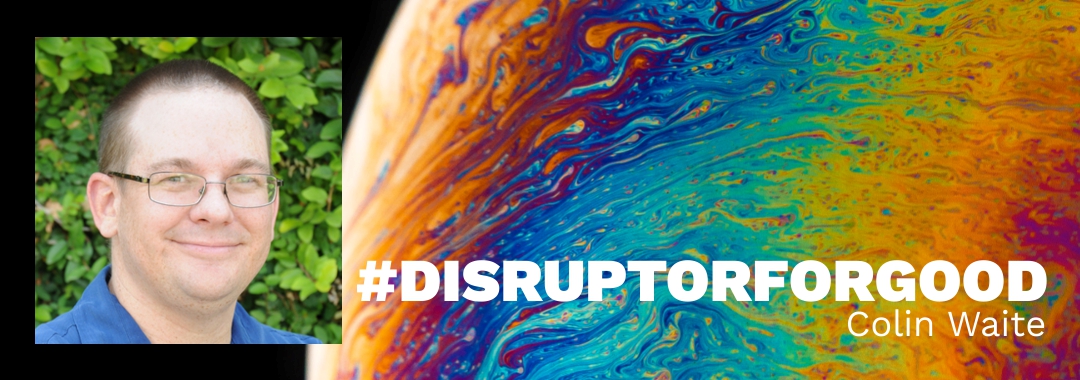
My story begins in childhood. I grew up in a time and place where being outdoors all the time was the norm. When I woke up in the morning, I ate breakfast, watched a few cartoons, and then got kicked out of the house by my parents. I lived on the outskirts of a small city that was very rural, and down the street from my house was a creek lined with forest. I spent a lot of time there, building forts and catching crayfish. It was a safe place in a safer time, and I walked or biked all over the place, never worried, just a curious explorer. My family camped a decent amount, too, and although my parents weren’t the outdoorsiest people in the world, they did see how happy our family was when we were in nature. Those nature seeds blossomed in high school.
My biology and environmental sciences teacher, Mr. Coaster, inspired me to look closely at human impacts on natural systems. My concern over what humans were doing to the planet led me to even do an independent study on water quality in the region, and I performed tests on local waterways and shared my data with other young citizen scientists as part of a larger study. It led me to choose Environmental Science as my undergraduate major at Northern Arizona University.
The greatest thing I can do is to pass along my knowledge and experience to others, and I do that as a regular part of my work and at home with my children. Sharing the natural world with children is my passion and calling, and when I see the wonder in their faces as we explore, it allows me to forget the cares of the world, if only for a little while. This is most important for kids who would not otherwise have the chance due to lack of resources. For them, it is only because of a dedicated and passionate classroom teacher leading a field trip experience that they can make those important connections to the natural world.
I do my best to model an environmentally friendly lifestyle, too, although it is such a challenge in a society that does not fully embrace how crucial it is. So many of our strategies for living in harmony with the earth are EASY, and yet too few of us actually do them. We conserve electricity and water very religiously. We try to eat fresh foods instead of highly processed, both for health and the environment. We’re careful with packaging – buying in bulk, using reusable bags, reusing materials whenever we can.
Lastly, I try to be politically active – voting and contacting my elected representatives at all levels of government. Politicians NEED to hear from us on a regular basis – thanking them for actions that will help the planet and criticizing them for harmful ones. They don’t hear from enough of us and not often enough. For our democracy to work properly, more people need to be informed and active!
The problems of our planet are HUGE and overwhelming! They make us feel like we can’t make a difference, but we can. Every change in our habits that we make adds up, and since I’m talking to everyone, just imagine if each of us pledged to use a little less electricity or a little less water? All living and non-living things on our planet are connected in the web of life, and every action has a consequence, for good or ill. We’re traveling on this spaceship we call Earth together, and if we don’t start working together, like now, the ship will no longer support us or the unparalleled diversity of creatures we share it with.
Start small; start at home, in your neighborhood, at your school or at your office, and then let it grow into something that impacts the world around you!
Colin Waite is the Director of the Cooper Center for Environmental Learning, known to many Southern Arizonans as “Camp Cooper.” He has been a part of the Center’s programs with children since 2003, and works closely with partners at the University of Arizona College of Education and Tucson Unified School District to provide memorable overnight and day experiences in the Sonoran Desert to more than 3,000 schoolchildren each year. Colin lives in Tucson with his wife, Leiba, and sons Gavin and Sawyer.